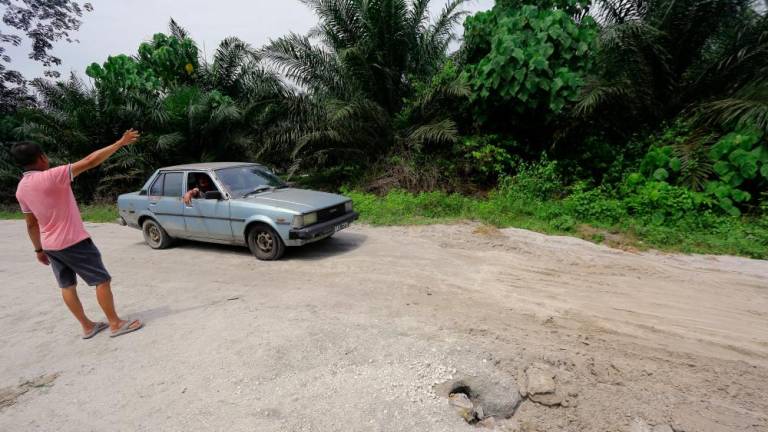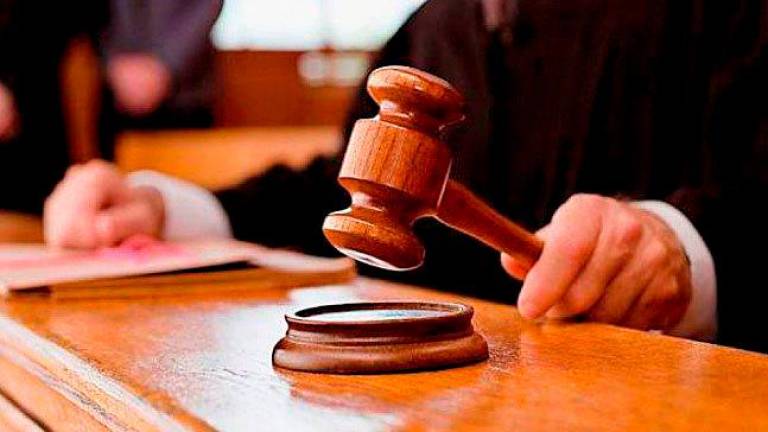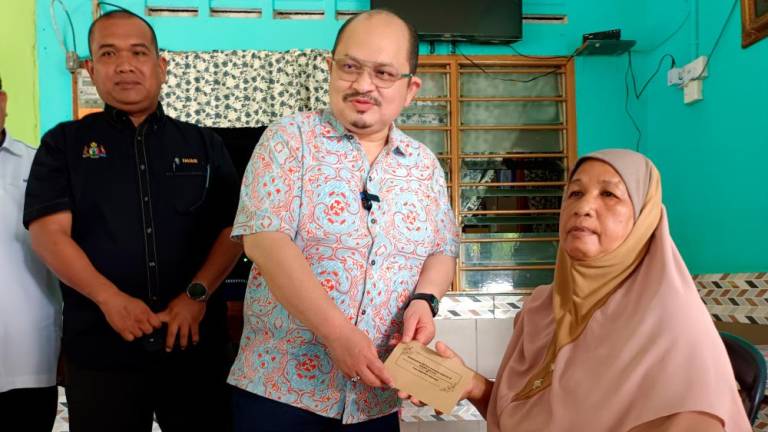WHAT do all non-Muslims have in common – a drink in hand? During the Rantau by-election, a Malay candidate pledged to honour the right of non-Muslims to have their frothy brew. Through the years and decades of electioneering, Chinese and Indian politicians have of course championed the “right of non-Muslims” to drink liquor.
But this vigorously upheld “right of non-Muslims” creates a false link between their religions and liquor. The word “non-Muslim” is a religious classification and should never be mixed with gin, beer and whisky. Bulan Ramadan presents divine opportunities to understand some injunctions common to Islam and Buddhism. As fasting gets into full swing and Wesak inches closer, the meeting of these two great faiths is like the joining of light from two candles to spread greater illumination.
In Buddhist morality there are five precepts or panca sila, one of which forbids intoxicating drinks. Panca sila moulds the conduct of Buddhists who comprise half the non-Muslims in our nation. If half the non-Muslims are forbidden by their religion to go pub-crawling, then the statement – “right of non-Muslims to drink liquor” – is utterly misleading. This political statement should be reworded as the “right of drinkers to consume liquor”.
The five binding precepts are enunciated in many Buddhist scriptures such as the Cakkavatti-Sihanada Sutta (verse 62:6) that says: “You shall slay no living being; You shall refrain from taking what is not rightfully given to you; You shall not act wrongly touching bodily desires; You shall speak no lie; You shall drink no intoxicating drink”.
The Buddha condemns wrongdoers in stern words: “Pursuing five things one is surely cast into hell as the reward. One destroys life, takes what is not given, lusts after evil, lies, and lives in the idleness of liquor and strong drink indulgence” (Anguttara-Nikaya, Pt5: 15:145).
We have yet to count the tens of thousands of other abstainers. Contrary to popular opinion that Christianity allows drinking, many towns in America’s Bible Belt prohibit selling or buying of liquor. Thus, using alcohol to draw a line separating Islam from other religions is seriously wrong. The dividing line is between drinkers and non-drinkers, not between Muslims and non-Muslims. Furthermore, the Buddhist precept against liquor indulgence was issued more than a thousand years before the advent of Islam.
The reason for rejecting intoxicating liquor is that it brings harm. The Buddha lists six dangers: loss of wealth, quarrelsomeness, disease infliction, loss of good character, indecent exposure, impaired intelligence (or mind altering). There is a Scandinavian joke that goes like this: “Three Vikings walked out of a bar.” Everyone roars in laughter because Vikings are always drunk and never walk out of a bar. They stumble, stagger, fall, crawl, or roll out.
It’s time to roll out some grand truths from the barrel, and impose tighter controls similar to those in Australia where you can only buy liquor from liquor shops. In Malaysia you can buy liquor from sundry shops and supermarkets frequented by children. Just like cigarettes. Such pervasive exposure causes super-high levels of addiction to both these substances.
Doubtless, there is a label warning you that the beverage may endanger your health. That’s missing the mark. The label should read: “This drink may endanger lives.” Public safety is at stake as the Buddha warns of intoxification resulting in quarrelsomeness, indecent exposure, and impaired intelligence. Drunken pub brawls cause injury, and occasional deaths. Pub owners in Malaysia cleverly employ bouncers to shove quarrelsome drunkards out as they are not responsible for mayhem beyond their premises.
But road users are exposed to danger as drunk driving takes a heavy toll of lives. More than half of fatalities are caused by excessive drinking combined with speeding, with out of control vehicles ploughing into other vehicles. Faced with growing Christian pressure, renowned brands in Europe and America have responded by producing low-alcohol (not more than 1.2%) or zero-alcohol (close to 0%) beer. They are re-inventing tuak or tapai, with a much improved flavour.
Whisky is next in line for a flush, so you can have your shot and yet stay sober.
The writer champions inter-faith harmony. Comments: letters@thesundaily.com














